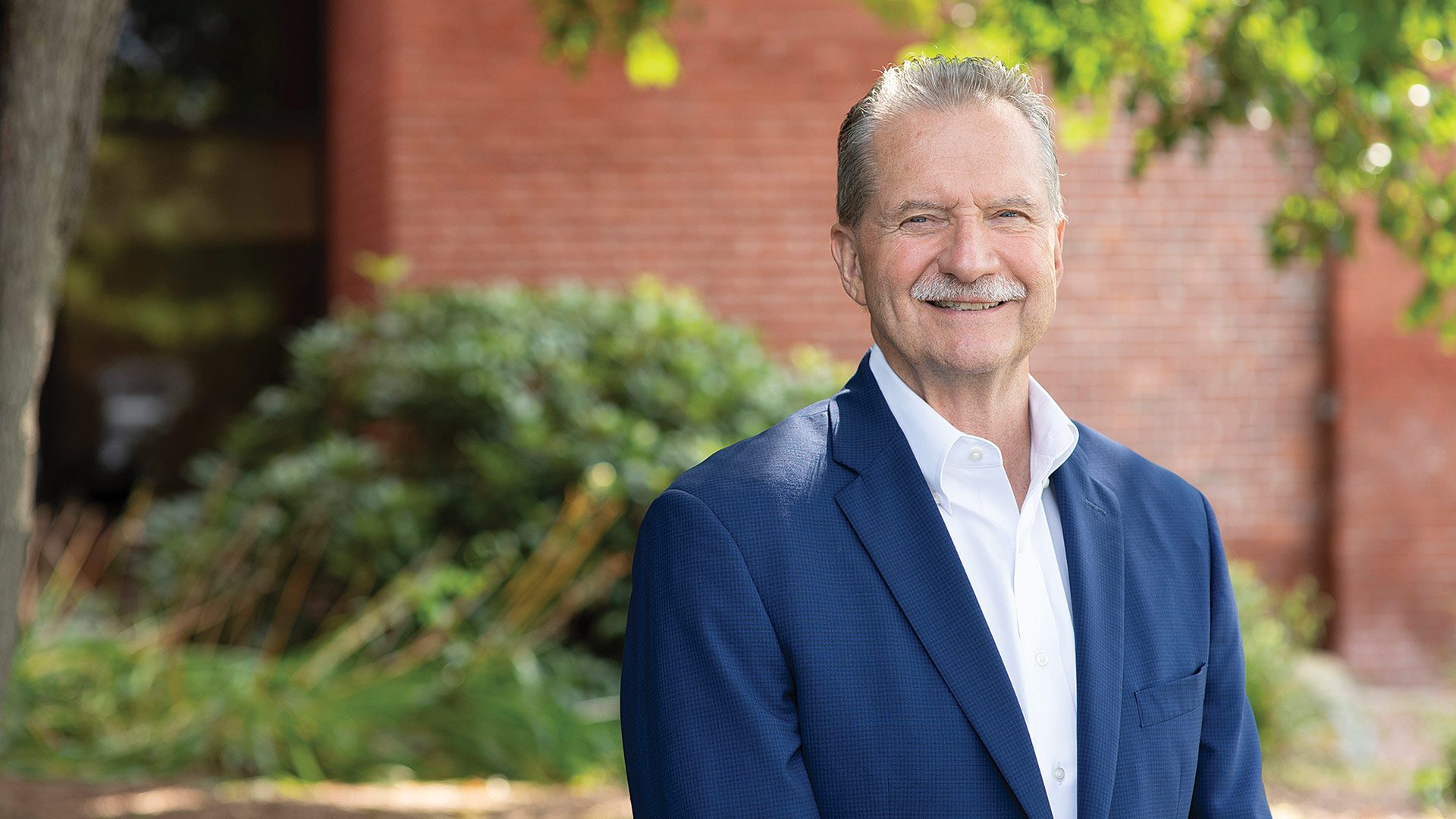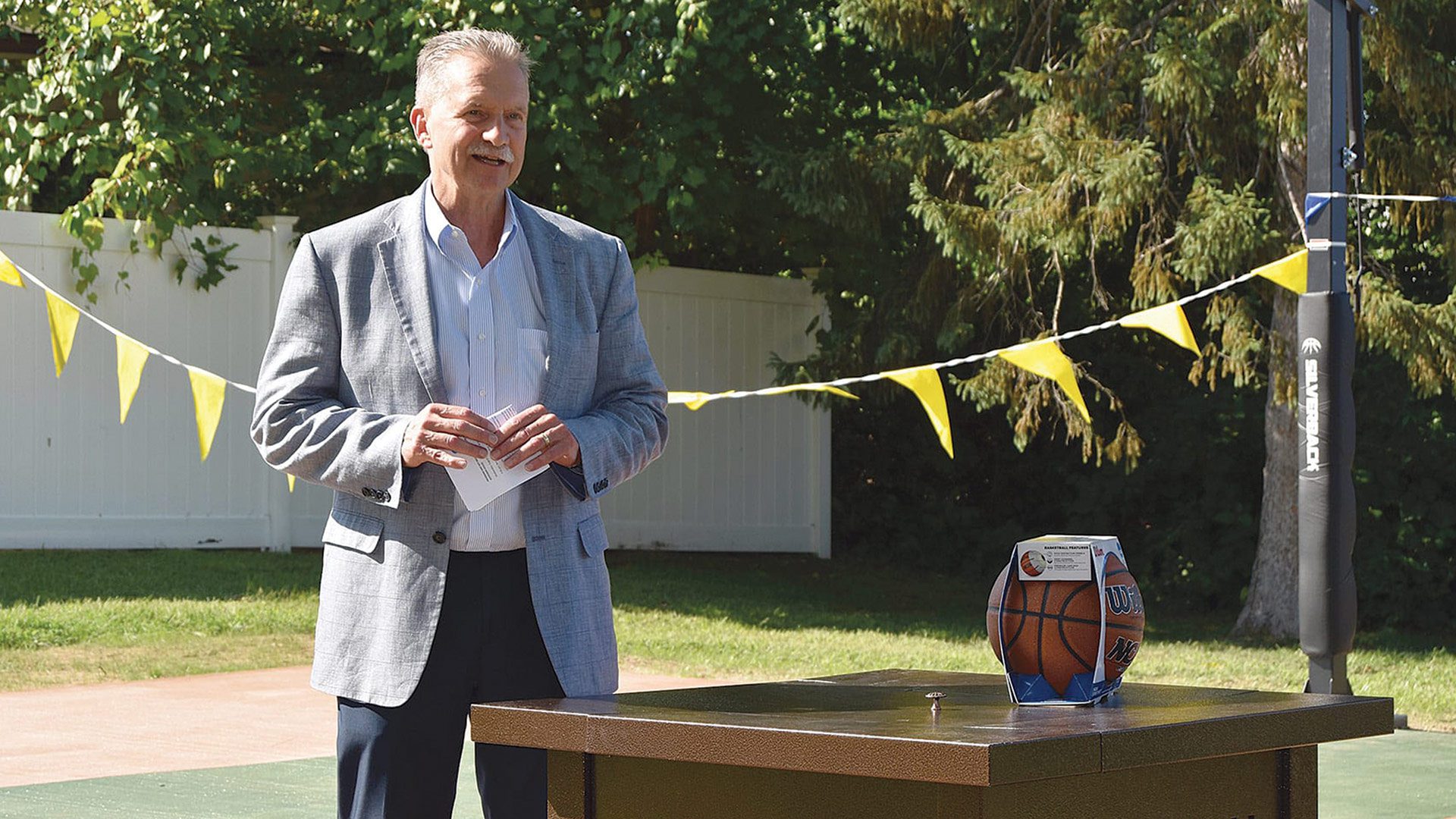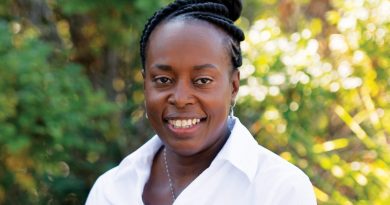Lifetime Achievement: James Goodwin
President and CEO, Center for Human Development
In His Long History with CHD, He’s Seen Plenty of Lives Changed
By Joseph Bednar

On more than one occasion as he spoke with BusinessWest/Healthcare News, Jim Goodwin referred to “short-termers” — employees who, for whatever reason, don’t stay at the Center for Human Development for very long, and don’t get to see the full scope of CHD’s impact on individual lives.
And that’s unfortunate because that impact, he noted, can be slow.
“One of the positives about being here a long time is you get to see how things change,” said Goodwin, the organization’s president and CEO. “We’re not working with a group of people where you sit down and have a conversation and they come away changed. It’s a process.”
For instance, he said, “people that experience serious substance-use issues often try and fail, try and fail, try and fail, and then they make some progress. When you’ve been around a while, you know failure is part of the process, and you see the change over time.
“It’s the same thing with mental health,” he went on. “Certain things in mental health never go away. It’s like diabetes; it’s with you for life. You figure out how to cope with it, how to live with it — and that is a long, hard process.”
That process may include a combination of resources, from medications to therapy to stress-management strategies, he explained.
“When you get to see it happen over time, you see that people can learn skills, they can learn to function normally with various forms of mental illness. You see the difference in people who get services and hang in there and fight the fight and come out the other end. I’ve gotten to see a lot of people come out the other end, develop those skills, and change their lives.”
In his 42 years with CHD, the last 16 as president and CEO, Goodwin has seen plenty of growth; since 2005, the agency has grown from a $48 million entity to $125 million, and from around 1,300 employees to 2,000. He sees the impact, as he noted, in those individual lives changed, but it’s the sheer number of those stories, and the scope of CHD’s work, that has earned Goodwin the title of Healthcare Hero for 2021 in the Lifetime Achievement category.
People that experience serious substance-use issues often try and fail, try and fail, try and fail, and then they make some progress. When you’ve been around a while, you know failure is part of the process, and you see the change over time.”
“There are a lot of things I’m proud of,” he said, trying to sum up those years. “CHD has had tremendous growth over the years. And as needs have changed, we’ve been able to change and adapt and provide services in more areas.”
Opioid use is one such growth area, he noted. “Over the years, the need for substance-use services has grown substantially, and that has required us to deliver services differently.”
Today, CHD’s services span a wide gamut, including behavioral health and addiction recovery, housing and homelessness, food insecurity, youth welfare, intellectual and developmental disability, child development and advocacy, and more.
“Jim has led CHD to step in and provide services where many others would not, including to people involved with the justice system, the homeless, people with severe mental illness or disability, and many others,” said Ben Craft, CHD’s vice president of Community Engagement, who nominated Goodwin for the award.
One recent example Craft cited is Goodwin House, a 90-day residential program providing substance-use treatment services for male teenagers. The facility and its staff work to help clients not only maintain their sobriety through proven recovery strategies, but also reconnect with their families, education, and job opportunities.
“Jim has quietly built an organization that is racially and culturally diverse and one of the region’s most highly rated employers,” Craft added, “one that has grown with the needs for its services and remained nimble and innovative to keep up with the turbulent environment in which it operates.”
Expanding on an Idea
When Goodwin considers CHD’s impact over the years, he’s quick to include the organization’s 2,000 employees as well as its clients.
“These are good jobs with good benefits that allow people to have good lives and do work that they’re proud of,” he said, noting that the broad diversity of his team reflects the makeup of CHD’s clients, most of whom access services in a geographic region spanning from Amherst and Northampton to Hartford and Waterbury, Conn.
It’s an impressive footprint for an agency born from a desire by its three founders — Bill Seretta, Kathy Townsend, and Art Bertrand — to offer community-based care. In the 1960s, Goodwin noted, community services were hard to come by, and people struggling with hunger, homelessness, or simple healthcare needs easily got lost in the system. Young people, particularly those with mental-health issues, were shuffled into state training schools that were more like prisons than centers of care.

“CHD took kids from training schools and served them in foster-care and group-home models, and started to have a lot of success,” he added. “It grew from there. These community-based models started to take off because they were so successful; then we started doing it with adults.”
Today, community-based care remains the heart and soul of CHD’s mission, but the breadth of services has expanded, with more than 80 programs that help people tackle some of life’s toughest problems — often in ways that other agencies hadn’t considered.
“We provide a combination of different types of services,” Goodwin said. “Many can be identified as a mental-health problem or a substance-use problem, but it’s often tied in with other things, especially all the things associated with poverty, joblessness, and homelessness. Many times, especially in the past, agencies would take on one component or the other; they might provide homelessness services or mental-health services. But we’ve been able to combine lots of different services to create a bigger package that does the full scope of things.”
It’s those connections — recognizing the role of social determinants of health and tackling the root causes of issues — that sets CHD apart, but it’s not easy work, Goodwin said. “Some days, it can be very difficult, but when you look at the whole picture, most days I’m really glad we’ve taken all that on.”
Jim has led CHD to step in and provide services where many others would not, including to people involved with the justice system, the homeless, people with severe mental illness or disability, and many others.”
It also cultivates an organization with career mobility, he added, as employees can move around and take on different roles as they gain experience in other fields. “One of the good things about CHD is you don’t have to leave to try something new.”
But those connections between clinical and non-clinical supports poses a constant challenge to come up with new ideas and approaches, he added. “You have to be creative.”
Take, for example, Innovative Care Partners (ICP), which is a collaboration between CHD (the managing partner), Gándara Center, and ServiceNet designed to better serve clients in the MassHealth program for their behavioral-health needs. ICP’s care coordinators connect clients with other members of the healthcare-delivery system, including hospitals, primary care, and other providers, across the four Western Mass. counties to help ensure they’re getting needed services without duplication or inefficiencies.
“We get people to follow a set of services that speaks to their behavioral-health needs,” he said, which might include medication, psychiatry, or counseling, but the program also focuses on the factors that get people into health trouble, such as poor nutrition, high levels of anxiety and stress, and high blood pressure.
“Together, primary-care health professionals sign off on a comprehensive plan that speaks to the full range of their needs,” Goodwin explained. “That’s a change. There used to be walls between mental-health services and medical services. Everybody knew that didn’t make any sense, but until recently, it never became a focus of attention.”
Learning Experiences
Needless to say, the Center for Human Development has had a challenging 18 months navigating the COVID-19 pandemic. With 850 residential mental-health beds and thousands of clients accessing outpatient care, there was plenty of learning on the fly — especially when it came to telehealth — but everyone came through to continue meeting the needs that drew Goodwin to CHD 42 years ago, and plenty of others.
“We’re proud of our impact, and that includes our economic impact,” he said. “We provide local jobs, and our people are spending money in their local communities, buying homes … a lot of things are happening because they’re here and CHD is paying them. I think we contribute to the economy in a big way.”
But the main impact remains those individual lives that are changed — albeit sometimes very slowly.
“My goal from the very beginning was to have an agency people would be proud to work for and feel good about what they’re doing,” he said, admitting that the work can be tough, navigating thorny issues like homelessness, drug addiction, and young people in trouble with the law.
“That can be very difficult for the workforce,” he added. “But overall, it’s also very rewarding. It’s the type of work you can be proud of and see accomplishment.”

